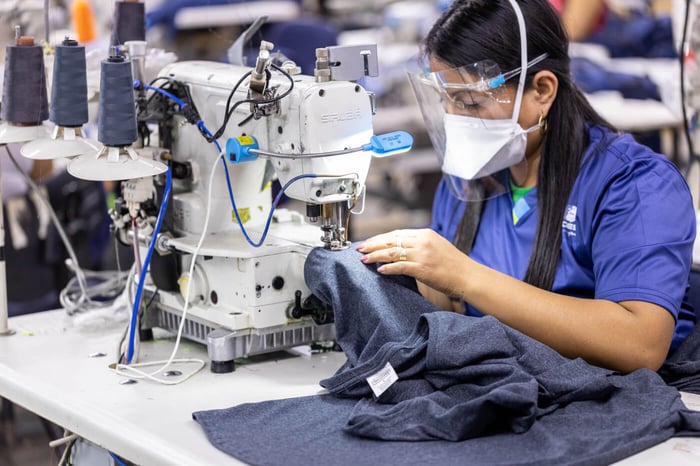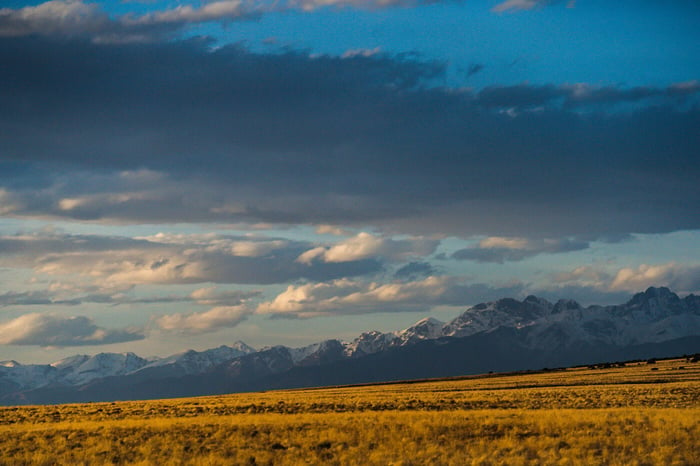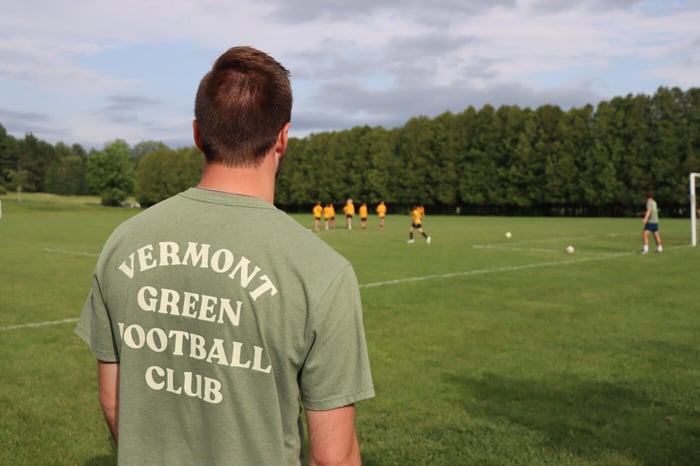In our state of the art El Salvador facility, we’re able to do everything from source raw materials to create finished products within a ten mile radius. Yes, that’s correct, we said ten miles, which the world’s fastest humans have run in under 45 minutes and biked in under 18 minutes. Solar-powered, energy efficient, water efficient, and committed to a happy and safe working environment for employees, Recover’s El Salvador roots are taking hold as the perfect compliment to our USA Local Supply Cycle.

In 2021, Recover officially partnered with Intradeco, a vertical-manufacturing company with extraordinary sustainable facilities and practices in El Salvador. Speaking about Recover, Jaime Miguel, Intradeco CEO described, “It’s easy to work with people that have similar principles, the same values, the same goal.” From the beginning, the relationship was synergistic in unique and deep foundations of creating a sustainable tomorrow today through innovation in the textile industry.

“Really, our goal is to be the leader in sustainable textiles,” explained Bill Johnston, Recover’s Founder and President. “We see a tremendous opportunity to lead the way in innovation. We have a completely vertical supply chain now and that’s something that we’ve been working on since the beginning. For us, we wanted to get as close to the source as possible, and this partnership with Intradeco is just that. We actually have access to the raw materials, and we control everything from fiber to finished garments.”

Vertical manufacturing means quick lead times, reliability for customers, and more assurance and opportunity for the most environmentally-friendly and socially-responsible goods. At Recover, we’re constantly thinking about: How can we conserve as much water and energy as possible? How can we reduce those carbon emissions? We’re controlling all of our own processes and all of our colors. All of this offers an opportunity to constantly tap into changing for the better, and really, it’s thinking about sustainability as a completely holistic approach. In our El Salvador facility, everything from recycled material to yarn spinning, knitting, and finishing, and cut and sew is all in the same facility. The localized manufacturing, reduced carbon emissions, reduced water consumption, and reduced energy plays such a vital role. Considering Intradeco, Bill smiled, saying, “El Salvador is the perfect fit for us.”

The impacts of our Recover x Intradeco partnership in El Salvador are just starting out, but will quickly add up. Compared to a conventional shirt, just one Recover shirt made in our solar-powered El Salvador facility saves:
- 8 bottles from the landfill
- 29.8 kWh of energy
- 212.3 lbs of carbon emissions
- 2,083 liters of water
Plus, North Carolina to San Salvador, El Salvador is roughly 1,500 miles, which is just about the same distance from Charlotte to Denver, Colorado. Compare that with approximately 8,500 miles from Asia to the States and you can grasp how many carbon emissions are saved not just in vertical manufacturing, but in transport from our El Salvador facility to the U.S.

With over 38 years in the textile industry, Intradeco has worked to develop sustainable supply chains to try to make them as close as possible to the market. Bill noted, “I think a lot of people hear the word sustainable or sustainability, and it’s a really broad term that has different meanings depending on who you ask. It’s not one singular thing. It’s more of a mindset and a way of doing things.” A holistic approach to sustainability is something Recover and Intradeco share, considering local and global communities and environments for generations to come with every decision and every next step. Ultimately, we’re working to leave things better than we found them.
Jaime described, “In this industry you cannot act alone, you cannot have all the processes, you cannot control all raw materials. You need very good suppliers, good partners, good vendors, good customers. Having the reliability and having trust in those relationships and networks that we have built is a big differentiator.”

Bill continued, “I think the way the world is moving you’re going to see a lot of manufacturing return to that localized mindset and that’s really what we’re trying to lead the charge in as much as anything. We don’t want to be the only ones doing it. We want it to catch on for the masses because in order for it to really make a difference and for sustainability to catch on, it has to be available and accessible for other brands and other networks.”
Charging on in both El Salvador and the USA, Recover is working for a sustainable tomorrow today.







